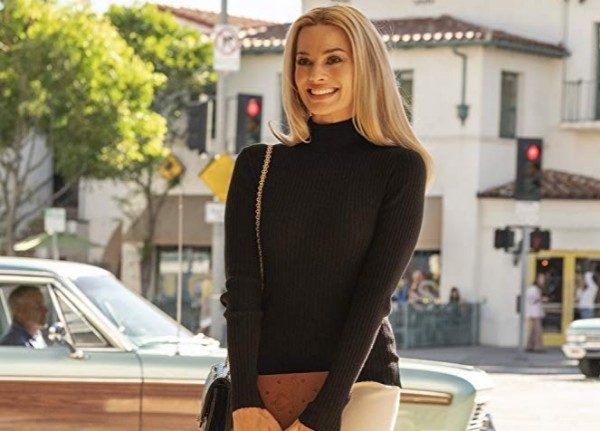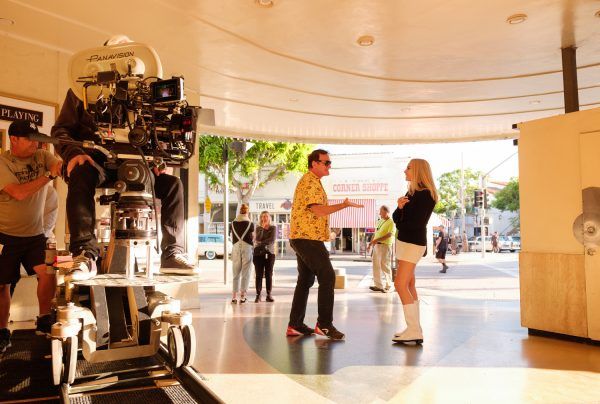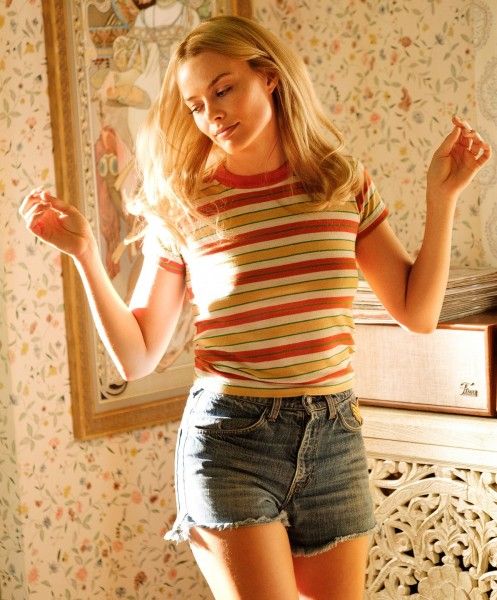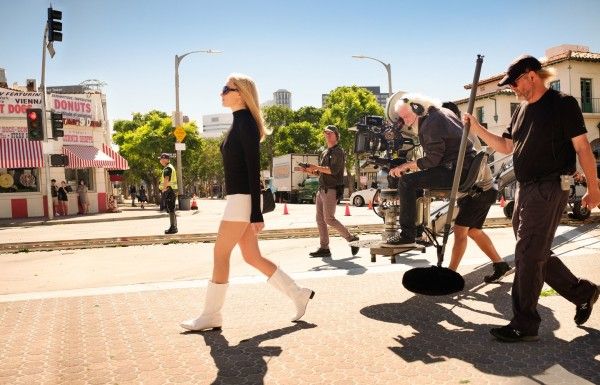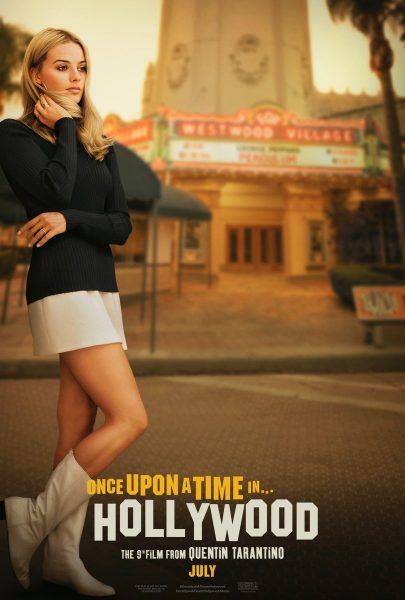Writer-director Quentin Tarantino is shedding some light on his portrayal of Sharon Tate in his most recent film Once Upon a Time in Hollywood. The R-rated drama has amassed $239.7 million worldwide in its first month of release, but not only has the film been a box office success, it’s managed to accomplish a feat that’s becoming rarer and rarer at the movies these days: people are still talking about it. With so much new content being thrown at us almost daily, it’s hard for anything to penetrate the zeitgeist for more than a single weekend, but Once Upon a Time in Hollywood gives us so much to chew on, the film is still spurring lively discussions. About Tarantino’s portrayal of famous figures, about the violent third act, and about the dynamite performances of Leonardo DiCaprio and Brad Pitt.
One aspect of Hollywood that’s been a topic of discussion since the film was announced is Margot Robbie’s performance as Sharon Tate. While DiCaprio and Pitt’s characters are the film’s protagonists and carry the bulk of the screentime, Robbie’s Sharon Tate is an unforgettable presence, and the “character” (for lack of a better word) is integral to the film’s themes about permanence and legacy.
Tarantino recently sat down with Paul Thomas Anderson for a must-listen interview on the DGA podcast, and during the conversation he offered up his clearest and most thoughtful explanation yet for how he chose to portray Tate in the film. First and foremost, he admitted that while he’s been working on this screenplay since just after Death Proof, he can’t imagine having made it at any other point in his career because he wouldn’t have had Margot Robbie:
“But the thing that makes it always kind of collapse a bit as, ‘No, no this is definitely the right time [to make this movie],’ is I can’t imagine another time I would’ve had Margot. It was just so easy to do it with her and she was terrific. I just can’t imagine the movie without Margot… She’s such a force of nature on her own and she’s such a force of light and goodwill on her own, just shooting with her is so much fun.”
Speaking to the larger point about Sharon Tate in the film, Tarantino explained that his approach was to make her less of a “Tarantino character” and more an accurate representation of who Sharon Tate really was:
“One of the things that’s been so incredibly gratifying about this whole experience for these last four weeks is… it’s interesting because I tried to not turn Sharon into a Quentin Tarantino character. Rick’s a Quentin Tarantino character, Cliff’s a Quentin Tarantino character, even McQueen is a bit of a Quentin character. But in a way I didn’t want Sharon to be a character, I wanted her to be the person that she is. Now it’s only my interpretation of the person from what I’ve learned about it, and I’m definitely leaning in to the bright and the light stuff, but that really seems to be who she is. If there are other aspects of her out there I didn’t find it.”
Tarantino went on to say that his goal with the film was to hopefully untangle Tate’s legacy a bit from her tragic death:
“She was almost supposed to represent normalcy in the [film]. She doesn’t have any plot to do, we’re just watching her live her life because that’s what was robbed from her, was living her life. And the fact that she’s a person consigned to history for the most part defined completely and utterly by her tragic death, and in these last four weeks people have watched Margot play this person, and they saw that she was more than that. And that she was a lovely person and they get a sense of her spirit and they get a sense of her life, and you actually watch her doing things that people do in a life, running errands, driving the car, just life stuff. And you even got to see the real Sharon juxtaposed into that. And now I actually think people will think about her differently than they thought before. It’s not the beginning and end-all of Sharon, there’s still more to learn about her and everything, but as far as saving her from her tombstone, the movie has kind of done that, to a small degree but to a significant degree.”
I couldn’t really agree more. There were criticisms early on about Tate’s lack of dialogue in the movie, and by Tarantino’s own admission she doesn’t really have any “plot” to take care of. But that’s the point. It’s not a coincidence that one of the most moving and memorable sequences in the film is simply spending some time with Sharon as she watches her own movie in a crowded theater. She’s alive and vibrant and delighted. She doesn’t have some big monologue to deliver, or uncover a bomb plot or anything. She just lives her life. And that’s the point.
Listen to the full, insightful podcast conversation below.


